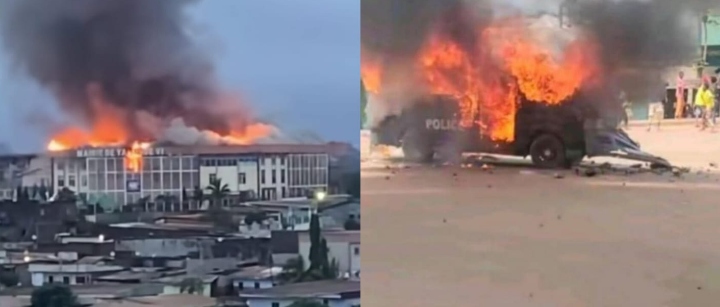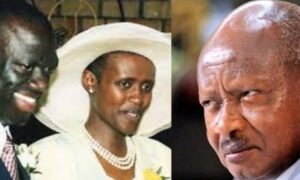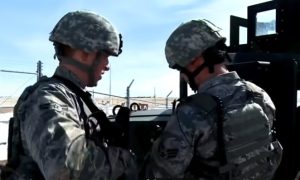Dark smoke drifts over Dar es Salaam’s skyline. Streets once bustling with traffic now echo with the hum of armoured trucks.
Tanzania, long viewed as an island of calm in a turbulent region, is suddenly on fire, both literally and politically.
Late on October 29, the government imposed a dusk-to-dawn curfew across the commercial capital. The order came after protests over alleged election rigging turned violent.
Petrol stations burnt. Police clashed with crowds hurling stones and chanting, “We want our country back.”
The election that sparked the chaos was meant to be routine. Instead, it has torn open Tanzania’s fragile calm.
Already, the US Embassy in Tanzania has warned its citizens of ongoing protests in several areas and advised personnel to shelter in place at their residences or other safe locations.
President Samia Suluhu Hassan, seeking a fresh mandate, stands accused of tightening her grip. She is accused of disqualifying rivals, jailing opposition leaders, and shrinking the space for dissent.
Her ruling Chama Cha Mapinduzi (CCM) party, in power since independence, faces its sternest test in decades.
Social media
On social media, the story unfolds minute by minute. TikTok clips show police charging through alleys, gunfire crackling.
On X, Tanzanians share smoky nightscapes under the tag #DarUnderCurfew.
A post reads: “They took our vote; now they take our sleep.”
Some Tanzanian activists on the platform claim dozens have been shot dead by a killer police gang.
Facebook groups flood with grainy videos of barricades, blackouts, and defiance. The emotion is raw, typifying fear fused with fury.
Live scenes from Arusha, Tanzania. The flames of change are hot and high. Samia Suluhu shutdown the internet only for VPN users to say, ” hold my beer.” The revolution is being televised. East Africa abductions syndicate MUST fall. pic.twitter.com/SrHRXL3e5M
— I am Chege (@_James041) October 29, 2025
Internet outage
Internet disruptions deepened the unease. Observers and journalists struggled to report as connectivity dropped.
By evening, most of Dar was silent. Shops shuttered. Families crouched by candlelight, waiting for calm that never came.
“This is more than post-election unrest. It’s a portrait of a country at a crossroads,” a commentator is quoted in a video.
Samia, who rose to power in 2021 after John Magufuli’s sudden death, once embodied cautious hope, even a softer face of leadership.
But critics now see a return to the old script: state power enforced through fear.
International observers have voiced alarm, warning that the polls risk eroding Tanzania’s democratic veneer.
The opposition calls it “a coronation, not an election.”
By nightfall, soldiers manned intersections. The air smelt of tear gas and burnt rubber.
READ ALSO: Samia Suluhu Orders Police Officers With Big Bellies Back to Training
In the city centre, a lone banner fluttered from a shattered billboard: “Peace, Unity, Development.”
“Tanzania teeters on the edge; its streets are a stage for a democracy under strain, and its people are caught between silence and defiance,” another commentator on Facebook observed.
PAY ATTENTION: Reach us at info@gotta.news.


























